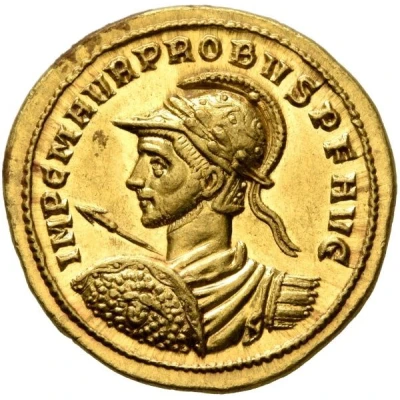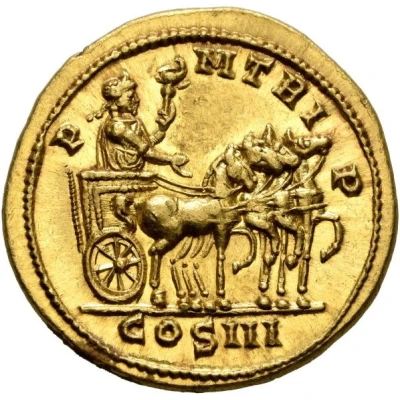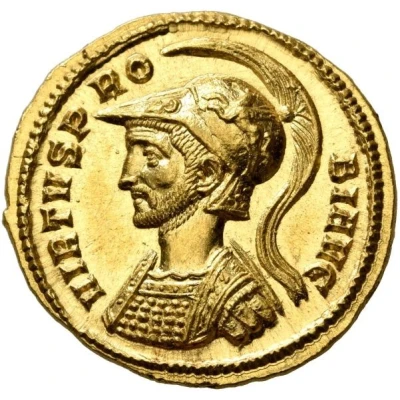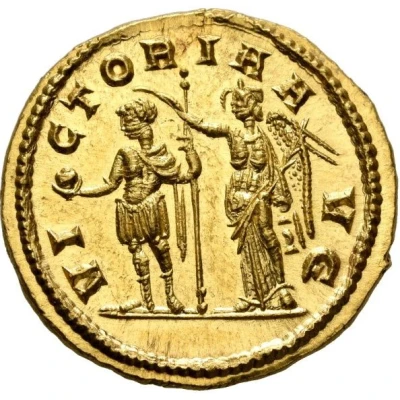


© Leu Numismatik
Aureus - Probus P M TRI P COS III; Siscia
279 year| Gold | 7.00 g | 20 mm |
| Issuer | Rome › Roman Empire (27 BC - 395 AD) |
|---|---|
| Emperor | Probus (Marcus Aurelius Probus) (276-282) |
| Type | Standard circulation coin |
| Year | 279 |
| Value | Aureus (25⁄2) |
| Currency | Antoninianus, Reform of Caracalla (AD 215 – 301) |
| Composition | Gold |
| Weight | 7.00 g |
| Diameter | 20 mm |
| Shape | Round (irregular) |
| Technique | Hammered |
| Orientation | Variable alignment ↺ |
| Demonetized | Yes |
| Updated | 2024-10-05 |
| Numista | N#384749 |
|---|---|
| Rarity index | 100% |
Reverse
Probus, laureate and togate, standing in slow quadriga right, extending his right hand and holding eagle-tipped scepter in his left.
Script: Latin
Lettering:
P - M TRI - P
COS III
Comment
Only four known specimens.The striking of this magnificent aureus is connected to Probus' victories against Germanic tribes in 277-279. The reverse is specifically devoted to Probus' third consulship, which he assumed on 1 January 279. We see the emperor on his processus consularis, a public parade celebrating the beginning of a new consular year and the transfer of power from one pair of consuls to the other. Naturally, by the time of Probus, the role of the consulship had long shifted away from an executive to a more ritual role, since all the emperors since Augustus based their power on the extended tribunicia potestas and the imperium proconsulare maius, granting them control over the state and effectively turning them into military rulers.
Still, the consulship remained a source of prestige well into late antiquity, with some emperors - Probus being one of them - assuming the office on a yearly basis, whereas others took a more conservative approach, thus permitting more senators to hold the honorable office. Aside from the increase in dignitas associated with the consulship, the year would also be named after the consules ordinarii, thus ensuring them and their families a touch of immortality.
Interesting fact
One interesting fact about the Aureus - Probus (P M TRI P COS III; Siscia) coin is that it features a unique blend of Roman and Greek influences in its design. The obverse side of the coin depicts the Roman emperor Probus, while the reverse side features a representation of the Greek goddess Athena. This blending of cultural influences reflects the diverse and multicultural nature of the Roman Empire during its time.

